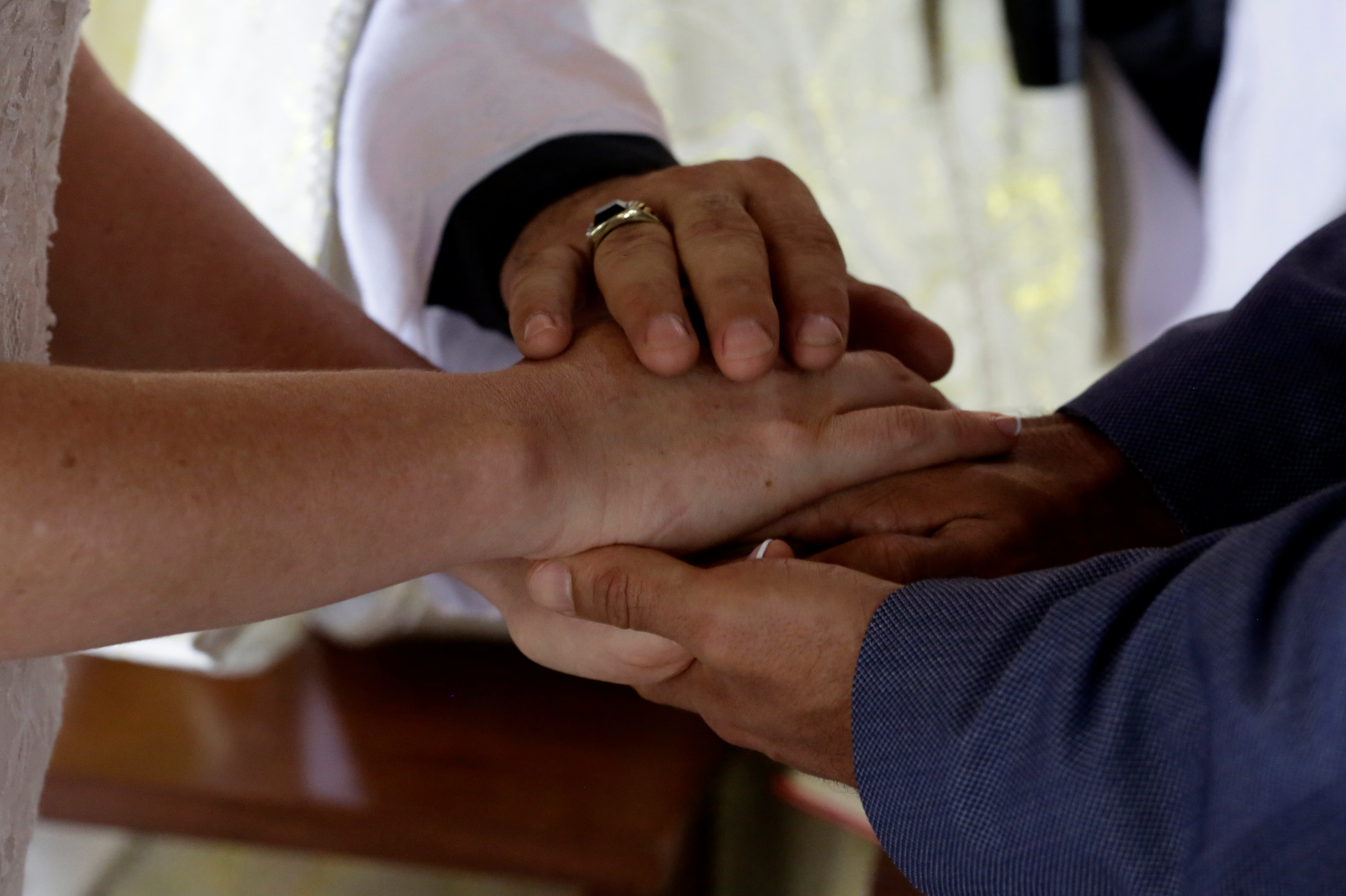There was a nice couple who lived on our street. They had a couple of kids, a great house, dogs, a sporty car. Everything seemed great. Until it wasn’t.
Having a divorce in the neighborhood is like having a sinkhole in your street. Everything that seemed stable suddenly isn’t.
A slight gravitational pull downward ripples across nearby bedrooms and kitchens, with everyone wondering why a family that looked a lot like our family suddenly didn’t make it. Wondering how stable their own home is. Wondering where the next sinkhole might appear.
How do we keep marriages whole? It is a question that has implications not just for individual families, but for our communities and for our Church. The social, economic and psychological costs of divorce are increasingly clear. The absence of a parent — often a father — has a lasting impact on both sons and daughters. Connections with the Church are frayed as well.
For the Church, the question is to what extent divorce is an explanation for declining rates of Catholic sacramental practice, for the decline of school populations, for the rise in cohabitation? Is God a casualty of divorce, or just the bonds to the Church?
For a number of years, my wife and I met regularly with young engaged couples who were doing marriage preparation as one of the requirements of our diocese.
It was both an honor and an eye-opening experience. The young men and women came from a variety of backgrounds and levels of knowledge about the faith.
Some were just going through the motions, but most of them wanted to do whatever increased their chances for marital success. They wanted to be inoculated against whatever might have caused the failure of their parents’ marriage or the marriages of their neighbors.
What I experienced once, priests often experience over and over. They tell me how hard it is to see the marriages they witnessed and blessed fall apart, sometimes in just a few years. It shakes their faith a bit too. They feel the pull of the sinkhole.
Unfortunately, a few weeks or months of marriage prep are no guarantee either. I recently met the husband of the very first couple we mentored. They are no longer together.
What I experienced once, priests often experience over and over. They tell me how hard it is to see the marriages they witnessed and blessed fall apart, sometimes in just a few years. It shakes their faith a bit too. They feel the pull of the sinkhole.
Pope Francis recently gave a thoughtful, even provocative talk to the Roman Rota, the Vatican court that often adjudicates final appeals regarding annulments. Pope Francis avoided what has become the traditional scolding of the court, as if the prescription for sounder marriages is the granting of fewer annulments.
Instead, Pope Francis said part of the blame goes to the bishops and priests if they don’t utilize a readily available resource: committed married couples who can be mentors for the newlyweds. Not just along their walk up to the altar, but afterward, in the months and years, the ups and downs, the children and the crises.
Experienced couples who have weathered the same challenges, who know that fights don’t last forever and that forgiveness and humility are the secret weapons of marital maturity — such couples can become the best evangelizers, Pope Francis told the judges.
In an age when families are transient and often untethered to a supportive network, the pope sees the value in a mentoring couple that isn’t just there for marriage prep, but that can walk beside another couple for many years.
To stop the sinking rates of marriage and the rising rates of divorce, it is going to take the whole community.
Pastors and bishops must enlist the help of such couples today, the pope said. Such couples are out there. “They are ready. They just haven’t been called.”
Erlandson, director and editor-in-chief of Catholic News Service, can be reached at [email protected].










